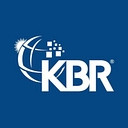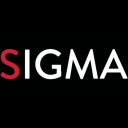About the role DroneShield is seeking a Principal RF Engineer with relevant experience to join the team in Adelaide, South Australia. The position will report to the Embedded Hardware Manager within the Sensors and Effectors Team. The Sensors and Effectors team at Droneshield is focused on providing fully operational and qualified modular devices to enable new product development of high-end RF based sensors and effectors. These modules are re-used across various product configurations including man-portable, vehicle mounted and fixed site. Key technical challenges for the electronics aspect of these modules include the design of complex wide-band RF circuitry, high speed digital interface and high-power radio frequency output. DroneShield designs and builds the full signal chain from signal generation to antenna. The expectations of this role will be focussed on the architecture of the system and detailed design, working with other teams to ensure the next generation product remain class leading. This will include inputs to the next generation electronics architecture, guiding engineers on SCH/PCB design implementation, reviewing validation test plan development, troubleshooting existing design problems and hardware issue root-case analysis and resolution. Responsibilities, Duties and Expectations Self-management of workload, methods and workflow to meet key business objectives. Schematic and PCB design using Altium, including contribution to component database and document templates. Expert knowledge with test equipment for validation of high-speed digital and RF interfaces, including training younger engineers for correct usage. Manufacturing test specification design and support for production setup & debugging. Hardware design validation planning and execution on both a modular and system level. Employing and developing sound industry practices for documentation and QC. Mentoring and training of junior engineers Design and develop RF jamming systems specifically tailored for countering unmanned aerial systems (UAS) threats. Optimise RF system performance by analyzing and resolving interference issues, improving signal quality, and increasing range and reliability. Work closely with the product development team to integrate jamming technology into portable, vehicle-mounted, and stationary anti-drone systems. Stay up-to-date with the latest RF technologies and industry trends to ensure that designs are innovative and competitive. Stay current with the evolving landscape of drone technology and counter-drone measures to ensure that jamming systems remain effective against new threats. Collaborate with cross-functional teams, including hardware engineers, software engineers, and project managers, to ensure that RF design considerations are integrated into the overall system design from the outset. Qualifications, Experience and Skills A degree in Electronics Engineering or similar technical field of study or equivalent practical experience. A minimum of 15 years' experience in RF design working within an engineering design team, preferably for systems used in anti-drone or electronic warfare systems. Knowledge of the following would also be essential: Expert knowledge of RF systems design including RF link budget, cascaded analysis for noise and non-linearities, and DSP blocks used in digital transceivers Experience with the definition of RF module specifications from higher level architectural requirements Substantial experience in RF circuit design including RF transceivers, high power amplifiers, low noise amplifiers, filters and diplexers, and high-speed ADC and DAC’s RF module design including mechanical and other environmental aspects (SWAP-C, EMC) Experience using RF CAD tools such as Microwave Office, ADS, CST or similar. Significant experience in SCH and PCB design using Altium. A theoretical and practical understanding of PCB layout techniques and mechanical shielding for high-speed digital and RF circuitry. Experience with RF board level rework Significant experience using benchtop test equipment such as VNA's, spectrum analysers and signal generators. Experience with design documentation, drawings and configuration management Knowledge of the following would also be desirable: Experience with conducting Antenna measurements and characterisation. Familiarity with the design and implementation of high-power RF amplifier linearization techniques Hardware design with integrated antennas. Knowledge of RF and DSP architectures used with Software Defined Radio Knowledge of mainstream RF modulation techniques. Knowledge and experience working with Multi-carrier combining. Experience with antenna design Familiarity with designing Test plans and procedures Familiarity with designing for manufacture and production Familiarity with communication protocols Familiarity of applicable global and local radio standards Experience with technical team leadership Experience in mentoring less experienced engineers. Note for recruitment agencies: We do not accept unsolicited candidates from external recruiters unless specifically instructed.



















